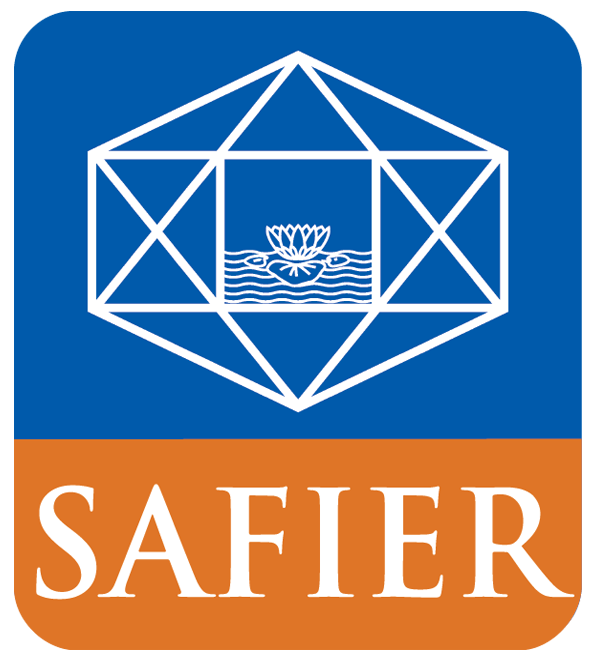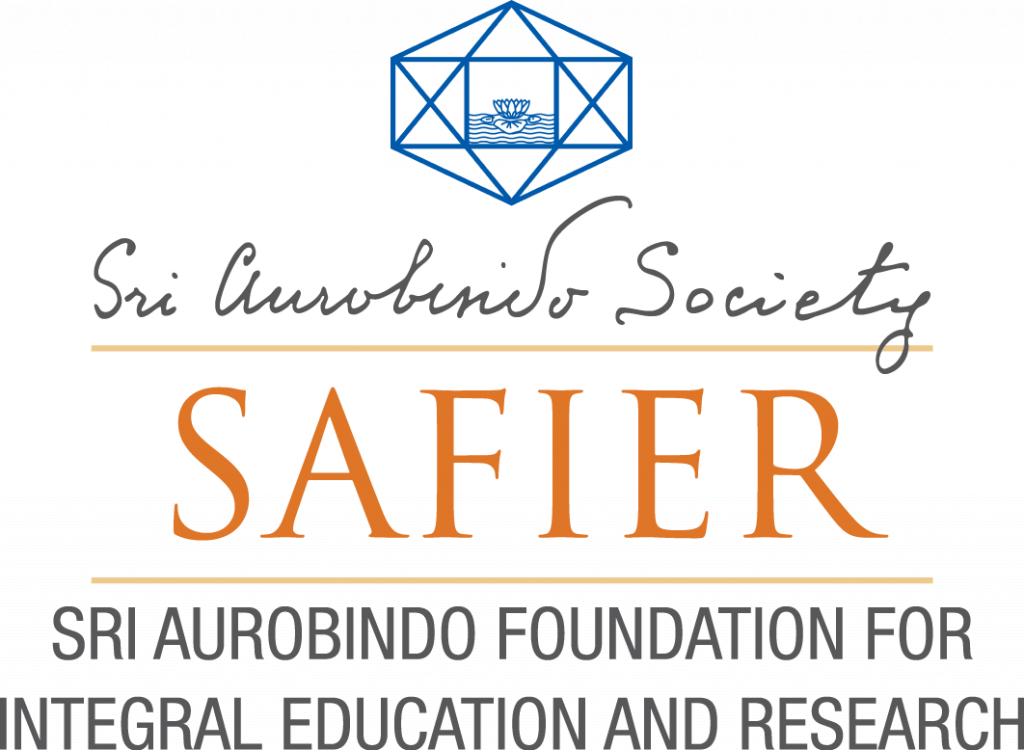Date:16, 20 & 25 Aug, 2016
Location: Auro Mirra International School, Bengaluru
August 16, 2016
Music and Language
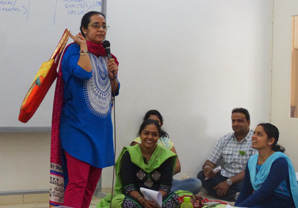 Music plays a pivotal role in language learning; singing, especially, is a captivating way to improve language learning. This close-knit relationship between music and language had provided a reason and an opportunity to the language teachers of Auro Mirra International School (AMIS) to attend a workshop on August 16, 2016, conducted by Harvinder Kaur, Director, India Council for Integral Education (ICIE), on Music and Language learning at their premises.
Music plays a pivotal role in language learning; singing, especially, is a captivating way to improve language learning. This close-knit relationship between music and language had provided a reason and an opportunity to the language teachers of Auro Mirra International School (AMIS) to attend a workshop on August 16, 2016, conducted by Harvinder Kaur, Director, India Council for Integral Education (ICIE), on Music and Language learning at their premises.
The session started with silence and meditation followed by breathing exercises. In this workshop, teachers discovered that music and singing can help a person learn to speak simple everyday basic essential phrases much quicker. It not only helps us retain words and expressions much more effectively but the repetitive patterns within the song help us memorize words.
In school, children begin their day with music. In a way music then is an inseparable element in the process of learning. Harvinder explained that the connection between music and language acquisition is powerful and music can make the experience a lot more fun. She elaborated how music provides a fluid way to process sounds that your brain automatically enjoys. Learning lyrics of a song helps us to expand our vocabulary and teach us some difficult phrases.
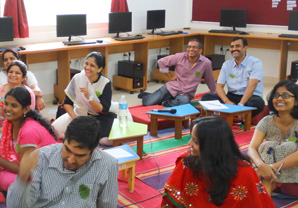 Harvinder made the teachers listen to a number of melodious old Hindi songs such as lakdi ki kaathi, re mama re, tu pyaar ka sagar hai,allah tero naam, and so on. These songs had meaningful lyrics and could be very useful for children to improve memory enhancement, concentration and coordination.
Harvinder made the teachers listen to a number of melodious old Hindi songs such as lakdi ki kaathi, re mama re, tu pyaar ka sagar hai,allah tero naam, and so on. These songs had meaningful lyrics and could be very useful for children to improve memory enhancement, concentration and coordination.
August 20, 2016
Integral Project Workshop
AMIS, Bengaluru, is proactive in involving parents understand the approach of the school with respect to education. One such initiative was the Integral Project workshop conducted by Harvinder Kaur, Director ICIE. The workshop was held on August 20, 2016, at the school premises with Jyothika (from Admin) warmly welcoming anxious parents with a peepal leaf—their name tag. Harvinder started off with questions reminiscent of school days which left each participant ponder and question their perspective, leading well into the concept of Integral Education which is holistic learning.
What should a child learn? This question perennially haunts every parent. This platform gave us enough clues to recognize that it is actually an inward journey and that the seeds are already embedded in each child. Exposure plays a significant role in identifying their interests and curiosity. As a parent and facilitator, we must remember that while some of the interests are age bound, many do not have an expiry date. If we let our children be, give them the freedom and keep vigil, they will embark on finding rich resources from within the family, neighbours and the environment.
Parents were divided into groups and asked to choose a topic of their choice. The first step towards Integral Project was a brain-storming session in which the parents got a glimpse of how to connect a topic to its various subjects, which in turn involves every child’s interest. It opens doors and windows to learning. The parents presented their projects creatively.
The Integral Project method helped parents realize that a lot of learning happens when in a group, through sharing. In just a day we were able to recognize various facets of a small, seemingly insignificant thing that we see every day; learning does happen through fun! We discovered how our small object of interest and research actually add a wide range of knowledge via this method of Integral Project. It was indeed a natural way of learning which we all thoroughly enjoyed.
August 25, 2016
Music and Tales
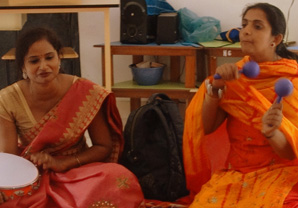 Music as a form of expression has been in vogue for decades. Vocal music, as background in movies and theatre, is known to all. So when musical instruments, simple and small, were procured in AMIS, Bengaluru, one assumed that naturally they would find place in the Music Room and the Music Teacher would be using them. Soon it dawned on us that it was not the case.
Music as a form of expression has been in vogue for decades. Vocal music, as background in movies and theatre, is known to all. So when musical instruments, simple and small, were procured in AMIS, Bengaluru, one assumed that naturally they would find place in the Music Room and the Music Teacher would be using them. Soon it dawned on us that it was not the case.
Harvinder Kaur announced a workshop for Pre-primary teachers on August 25, 2016 at the school premises. A short discussion ensued on the methods of story-telling adapted by teachers. We were then instructed to explore the various musical instruments. The purpose of the workshop was now very clear—we had to explore the possibilities of using musical instruments in story sessions. Soon the teachers started their exploration, taking turns to produce effects as one of them narrated a story. Teachers then worked in groups to make their presentation after a couple of days. The eager teachers presented their stories, each trying to give their best. It was amazing to note the impact these simple instruments had—a transition from the ordinary to an attentive and exciting session. Voila! The teachers under the able guidance of Harvinder had discovered yet another effective approach not only limited to story sessions but which could be extended to other subjects too.
